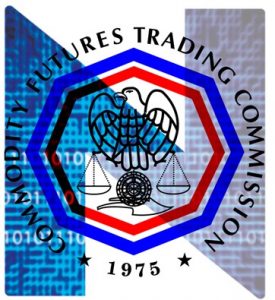 A US federal judge issued a very important ruling which will further define how virtual currencies are regulated.
A US federal judge issued a very important ruling which will further define how virtual currencies are regulated.
In the case the Commodities Futures Trading Commission (CFTC) Vs. PATRICK K. MCDONNELL, and CABBAGETECH, CORP. d/b/a COIN DROP MARKETS, US Federal Judge in the Eastern District of New York Jack Weinstein issued an order confirming that virtual currencies are commodities and thus fall under the subject matter of the CFTC.
You can find the related court documents here: 1-3 – 1-main – show_multidocs
Breaking Down the Ruling
On January 18, 2018, the CFTC filed a civil complaint against Coin Drop Markets et al, alleging that Coin Drop Markets, “operated a deceptive and fraudulent virtual currency scheme to induce customers (‘CDM Customers’) to send money and virtual currencies to Defendants in exchange for purported virtual currency trading advice concerning the trading of virtual currencies, including Bitcoin and Litecoin, and for virtual currency purchases and trading on behalf of customers under McDonnell’s direction. Defendants’ solicitations were deceptive and fraudulent, and soon after obtaining the funds of CDM Customers, Defendants stopped communicating with their customers and simply misappropriated the funds.” According to that complaint.
McDonnell, who was representing himself, filed a motion to dismiss for a lack of subject matter jurisdiction, arguing that the CFTC did not have standing the sue.
In 2015, the CFTC ruled that virtual currencies are commodities and thus under their purview, but that directive has not before been challenged in court.
McDonnell became the first to challenge this directive when he filed a motion to dismiss on February 15, 2018, arguing that the CFTC did not have subject matter because virtual currencies are not commodities and that the proper regulator of his business was his home state, New York, financial regulator.
“CabbageTech, Corp. receiving virtual currencies for membership subscription fees is NOT illegal in The State of New York, nor, in the scope of CFTC jurisdiction. New York State Financial Services regulate this area [pursuant New York Codes, Rules and Regulations; Title 23. Department of Financial Services; Chapter I. Regulations of the Superintendent of Financial Services Part 200. Virtual Currencies; License Exemptions; Section 200.3 (2)] ‘merchants and customers that utilize Virtual Currency solely for the purchase or sale of goods or services or for investment purposes.’” McDonnell stated in his motion.
But Judge Weinstein rejected that argument in a ruling on March 6, 2018: “Until Congress clarifies the matter, the CFTC has concurrent authority, along with other state and federal administrative agencies, and civil and criminal courts, over dealings in virtual currency. An important nationally and internationally traded commodity, virtual currency is tendered for payment for debts, although, unlike United States currency, it is not legal tender that must be accepted.” Judge Weinstein said.
He continued later: “The primary issue raised at the outset of this litigation is whether CFTC has standing to sue defendants on the theory that they have violated the CEA (Commodity Exchange Act). Title 7 U.S.C. § 1. Presented are two questions that determine the plaintiff’s standing: (1) whether virtual currency may be regulated by the CFTC as a commodity; and (2) whether the amendments to the CEA under the Dodd-Frank Act permit the CFTC to exercise its jurisdiction over fraud that does not directly involve the sale of futures or derivative contracts.
“Both questions are answered in the affirmative. A ‘commodity’ encompasses virtual currency both in economic function and in the language of the statute. Title 7 U.S.C. § 1(a)(9)
“(The CEA defines ‘commodity’ as agricultural products and ‘all other goods and articles . . . and all services, rights, and interests . . . in which contracts for future delivery are presently or in the future dealt in.’).
“CFTC’s broad authority extends to fraud or manipulation in derivatives markets and underlying spot markets. See Title 7 U.S.C. § 9(1). CFTC may exercise its enforcement power over fraud related to virtual currencies sold in interstate commerce.”
The Ruling and the Constitution
The ruling shows that the virtual currency regulatory regime will operate in the context of two very important constitutional principles: the checks and balances created throughout the Constitution.
In 2015, the CFTC decreed that virtual currency is a commodity and thereby under its purview, but the US is not ruled by executive fiat.
As such, the judiciary as well as the legislative branches will also weigh in on this question and indeed, Judge Weinstein was well aware of this when he said: “Until Congress clarifies the matter (emphasis added), the CFTC has concurrent authority, along with other state and federal administrative agencies, and civil and criminal courts, over dealings in virtual currency.”
In fact, Judge Weinstein will most certainly not even be the final judicial word on this issue; it’s likely the Supreme Court will someday weigh in on whether or not virtual currency is a commodity as well, though that doesn’t mean it will be in this case.
While for now Weinstein’s ruling affirms the CFTC’s position, it is far from the final word and that is because the Constitution has checks and balances among the three branches.
By the time the final word comes in on this issue, all the branches will have weighed in on some level.
For now, at least, virtual currency is indeed a commodity and thereby the CFTC has standing to regulate it.
To add confusion to the issue, many Initial Coin Offerings (ICO) have been deemed securities by the Securities and Exchange Commission (SEC) and thereby under its purview.
It’s very likely that a federal court will be weighing in on that issue soon as well.









